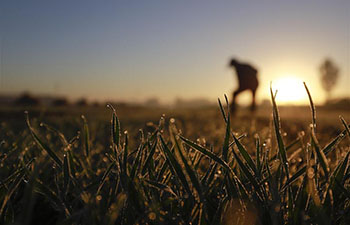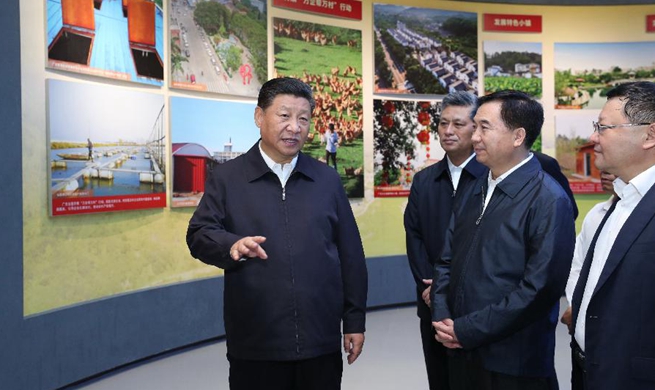LOS ANGELES, Oct. 23 (Xinhua) -- Weizhe Hong, a Chinese assistant professor of biological chemistry and neurobiology at the University of California, Los Angeles (UCLA), was one of 18 outstanding young scientists to be awarded the Packard Fellowships for Science and Engineering for 2018, UCLA said on Tuesday.
Hong's laboratory seeks to understand how animals, including humans, exhibit a broad range of complex social interaction that are crucial to their survival and well-being.
His team uses optogenetics, imaging, genomics and machine learning to study how networks of neurons in the brain control social behaviors and how those networks become disturbed in disorders such as autism spectrum disorder.
Established in 1988, Packard Fellowships, which are presented by the Packard Foundation, enable the most promising early-career professors of the United States to pursue science and engineering research.
Each year, the Foundation invites the presidents of 50 universities to nominate two early-career professors each from their institutions. An advisory panel of distinguished scientists and engineers reviews the nominations and selects 18 Fellows to receive individual grants of 875,000 U.S. dollars distributed over five years.
"By providing the freedom for brilliant young scholars to pursue new frontiers in science, this prestigious award will allow Hong to further explore and expand our understanding of how the brain works," said Kelsey Martin, dean of the David Geffen School of Medicine at UCLA.
"This type of scientific exploration can eventually lead to the development of new treatments for a range of neurological and psychiatric disorders," Martin said.
Hong joined UCLA in 2016 after completing postdoctoral fellowship at the California Institute of Technology (Caltech) and earning a doctorate from Stanford University.
"It really is amazing to see what brilliant researchers can do when given the room to take big risks," said Frances Arnold, chair of the Packard Fellowships advisory panel.
"I'm not only talking about their impressive contributions to their fields. I'm also talking about building entirely new disciplines and giving back to the next generation of scientists," Arnold said.
















